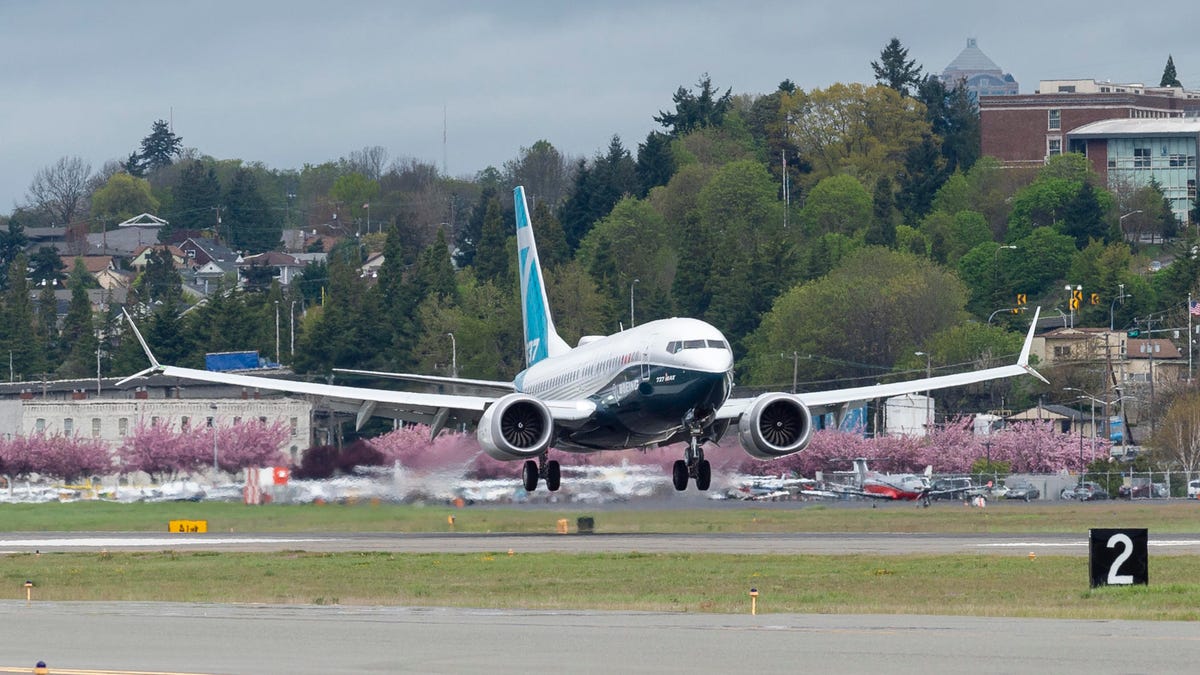Boeing 737 Max won't be rushed back to flight, FAA chief says
Federal regulators are reviewing the aircraft maker's proposed remedy to issue linked to two fatal crashes.

A Boeing 737 Max 7 lands at Boeing Field in Seattle after a test flight to evaluate the MCAS software fix.
Aviation regulators have no timeline on when Boeing's grounded 737 Max jet will return to flight, a Federal Aviation Administration official said Wednesday.
Daniel Elwell, the FAA's acting chief, said the agency's technical experts will leave "no stone unturned" as they review Boeing's proposed solution to an issue linked to two fatal crashes since October.
"If it takes a year to find everything we need to give us the confidence to lift the order, then so be it," Elwell told reporters, according to a Bloomberg account of the discussion.
"If there is a crisis in confidence, we hope this will help to show the world that the world still talks together about aviation safety issues," he said.
Boeing is eager to assure airlines and their passengers that its best-selling airplane is safe. The aircraft maker proposed an update in March to a flight control system that's at the center of investigations into crashes in Ethiopia and Indonesia that killed 346 people.
Though the official causes of both accidents have not been determined, investigators have found clear similarities. Under scrutiny is a flight control system called MCAS (for Maneuvering Characteristics Augmentation System) that pushes the 737 Max's nose down when it determines that it's too high. Preliminary data from both crashes show that flight crews struggled to take control as the airplanes continually dove just after takeoff.
CNET's Kent German contributed to this report.

